
Trump lawyer says she’s ‘ashamed’ and ‘embarrassed’ over secret papers indictment
Former president Donald Trump’s attorney Alina Habba said on Fox News that she is “ashamed” and “embarrassed” to be a lawyer after the former president was indicted. Ms Habba spoke on Jesse Watters’ show amid news that a federal grand jury indicted Mr Trump on charges related to his allegedly unlawful retention of national defence information. Mr Trump’s attorney said the indictment was a distraction from supposed impropriety on behalf of President Joe Biden, pointing to the fact that House Oversight Committee Chairman James Comer was planning to hold FBI Director Christoper Wray, whom Mr Trump nominated to lead the bureau in 2017, in contempt of Congress for supposedly withholding documents. House Republicans have so far come up short in their accusations against Mr Biden. Mr Comer retracted the contempt vote after the FBI agreed to share documents, The New York Timesreported. House Republicans have so far come up short in their accusations against Mr Biden. “Every single time there is a coordinated dance that is becoming obvious to the American people because they are smart,” Ms Habba said. The Trump attorney added that the indictments of the twice-impeached former president were the equivalent of a “shiny ball” meant to distract the American public. “I'm embarrassed to be a lawyer at this moment,” she said. “Honestly, I am ashamed. I'm ashamed to be a lawyer. I'm ashamed that this is the state of our country.” Ms Habba claimed the indictment showed the United States had a two-tiered system of justice. “And it is so obvious that there's this dual system of justice,” she said. “This is selective prosecution, selective persecution. It is absolute persecution. It is Russia third world stuff, and it should not be happening.” Mr Trump first broadcast the indictment on his Truth Social networking platform on Thursday, one day after The Independent had reported that federal prosecutors planned to ask a grand jury to indict Mr Trump. “I never thought it possible that such a thing could happen to a former President of the United States, who received far more votes than any sitting President in the History of our Country, and is currently leading, by far, all Candidates, both Democrat and Republican, in Polls of the 2024 Presidential Election,” Mr Trump said, denying his guilt and proclaiming he is an “innocent man.” Mr Trump said he has been summoned to appear at a federal courthouse in Miami on Tuesday by 3 pm ET. Read More Trump indictment – latest: Trump faces 100-year jail sentence as he declares ‘I am an innocent man’ Trump unleashes on ‘woke military’ and says America is ‘going to hell’ in bizarre Truth Social rant Can Donald Trump run for president after being indicted? Read Trump’s furious reaction to indictment: ‘This is war’ Ivanka and Jared split over attending Trump 2024 launch – follow live Why was Donald Trump impeached twice during his first term? Four big lies Trump told during his 2024 presidential announcement
1970-01-01 08:00
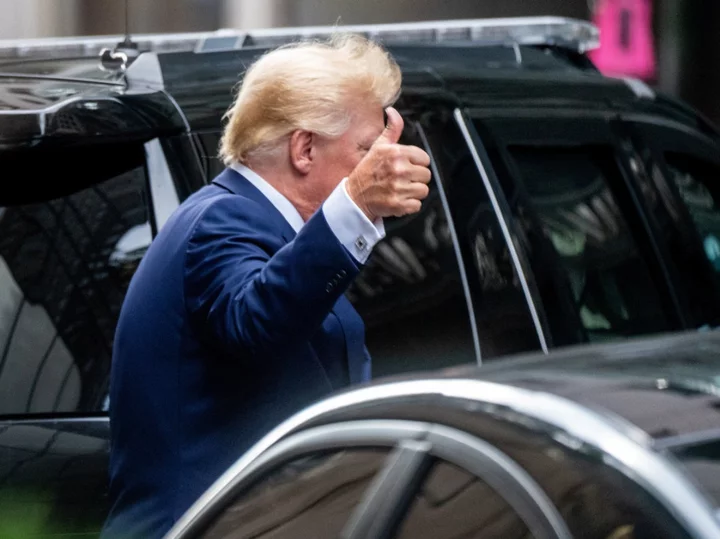
What is the Espionage Act that Trump is being investigated under?
What do the transgender whistleblower Chelsea Manning, the 1950s Soviet spy Julius Rosenberg and former president Donald Trump all have in common? The answer, following the indictment arising from the discovery of classified documents at Mr Trump's Mar-a-Lago home in Florida, is that all four have been investigated under suspicion of violating the Espionage Act of 1917. When the FBI raided Mr Trump’s property last August, they were looking for items that might violate the Act, which regulates the handling of confidential documents relating to national security. Most often used against spies, whistleblowers and government employees who leak documents to journalists, the Espionage Act carries a maximum sentence of ten years in prison. So what exactly is Mr Trump being investigated for? A contentious law with roots in First World War paranoia The Espionage Act is a controversial and often contested law that dates from America’s entry into the First World War against Germany in 1917. Even before joining the conflict, President Woodrow Wilson had urged Congress to crack down on immigrant groups and radical political movements that he claimed had “poured the poison of disloyalty into the very arteries of our national life”. At the time, German-Americans were a large and influential ethnic group, with those born in Germany comprising 2.7 per cent of the US population and 18.5 per cent of the foreign-born population, according to the census of 1910. Over 27 per cent of the nation’s “foreign white stock” spoke German as their mother tongue. There were German-language schools, churches, and newspapers throughout the country, which faced backlash from English-speaking groups. Passed just two months after Wilson joined the war and bolstered one year later in 1918, the Espionage Act criminalised many forms of dissent against the war, leading to jail sentences against speech-makers, leafleteers, film-makers and newspaper editors. The act’s more radical provisions were dismantled after the war, but other parts remain in force – including those listed in Section 793 of the US Code of Laws, which bans citizens from leaking or mishandling information relating to “national defence”. Since then, the Act has been used to prosecute the Soviet spies Julius and Ethel Rosenberg, the Pentagon Papers whistleblower Daniel Ellsberg, National Security Agency leakers Edward Snowden and Chelsea Manning and various other people who leaked US government secrets to journalists, the public or other nation states. What does the Espionage Act ban? US Code Section 793 forbids various forms of obtaining, leaking or failing to properly look after “information respecting the national defence”. For example, it forbids anyone to acquire any information about US national security facilities if they intend or have reason to believe that the information might be used “to the injury of the United States or the advantage of any foreign nation”. The Act also bans people lawfully entrusted with defence information that could harm the US from giving it to any unauthorised person, or from “wilfully retaining” it and failing to deliver it “to the officer entitled to receive it”. Another provision, wider in scope, makes it a crime for anyone trusted with such information (such as presidents) to let it be “removed from its proper place of custody”, lost, stolen, or otherwise waylaid “through gross negligence”. The same provision requires officials who become aware of such an incident to “make prompt report to his superior officer”, although it is unclear who Mr Trump’s “superior officer” would be in this case. According to the search warrant issued to agents last summer, the FBI seized various boxes and folders described as including “miscellaneous secret documents” and “miscellaneous top secret documents”. What could happen to Donald Trump now? Mr Trump has claimed he is being wrongly persecuted since the investigation began, just as he did throughout his presidency when his election campaign’s possible ties to Russia were closely examined. “This raid of President Trump’s home was not just unprecedented, but unnecessary – and now they are leaking lies and innuendos to try to explain away the weaponisation of government against their dominant political opponent,” a spokesman said in response to August’s raid. In response to his indictment on Thursday (8 June), Mr Trump wrote on his Truth Social platform: “The corrupt Biden Administration has informed my attorneys that I have been Indicted, seemingly over the Boxes Hoax. “I have been summoned to appear at the Federal Courthouse in Miami on Tuesday, at 3 PM. I never thought it possible that such a thing could happen to a former President of the United States, who received far more votes than any sitting President in the History of our Country, and is currently leading, by far, all Candidates, both Democrat and Republican, in Polls of the 2024 Presidential Election. I AM AN INNOCENT MAN!” If he is ultimately prosecuted and convicted, Mr Trump could be fined or imprisoned for up to 10 years, as well as forfeiting any property bought with proceeds of the crime. A conviction could potentially prevent him from holding political office again, not only because of the reputational damage but because the Fourteenth Amendment to the US constitution bans candidates who “have engaged in insurrection or rebellion against [the US], or given aid or comfort to the enemies thereof”. When the Socialist German-American journalist and former congressman Victor Berger was elected to a second term in 1918, Congress refused to seat him because he had been sentenced to 20 years in jail under the Espionage Act. However, with Mr Trump’s Republican allies rallying to his defence – and promising to investigate the way the FBI have treated him – who knows where this saga could end? Read More Trump indictment – latest: Trump faces 100-year jail sentence as he declares ‘I am an innocent man’ Trump unleashes on ‘woke military’ and says America is ‘going to hell’ in bizarre Truth Social rant Read Trump’s furious reaction to indictment: ‘This is war’ Trump has been indicted again: These are the investigations he faces Ivanka and Jared split over attending Trump 2024 launch – follow live Why was Donald Trump impeached twice during his first term? Four big lies Trump told during his 2024 presidential announcement
1970-01-01 08:00
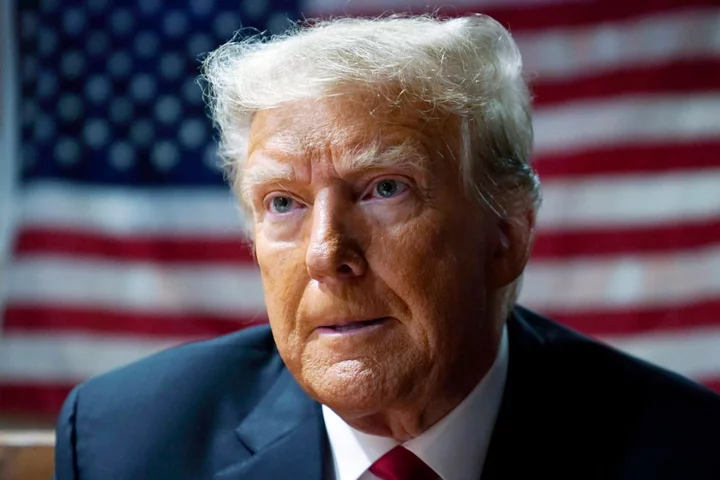
Trump indictment – latest: Reactions as Donald Trump faces seven charges in classified documents case
Former president Donald Trump has been indicted on seven charges related to his alleged unlawful retention of national defence information at his Palm Beach, Florida home. He is set to appear in federal court in Miami at 3pm ET on Tuesday. Writing on his Truth Social platform, the ex-president wrote: “The corrupt Biden Administration has informed my attorneys that I have been Indicted, seemingly over the Boxes Hoax”. The Department of Justice has been investigating Mr Trump for violating the Espionage Act and for obstruction of justice over the discovery of classified documents at his Mar-a-Lago home in Florida, the latest setback to hit his 2024 presidential campaign. The DoJ has not made any comment on Mr Trump’s claims but reports are that the former president is facing seven charges in the case. The dramatic development comes as Mark Meadows, Mr Trump’s former White House chief of staff, has reportedly agreed to plead guilty to several federal charges. Meanwhile, Republicans, including Mr Trump’s rivals from the party rallied behind the former president while criticising the “weaponisation of federal law enforcement”. Read More What is an indictment? Here’s what Donald Trump is facing Will Donald Trump be arrested and jailed after classified documents indictment? Trump indicted in classified documents case in a historic first for a former president Trump indicted: What to know about the documents case and what's next
1970-01-01 08:00
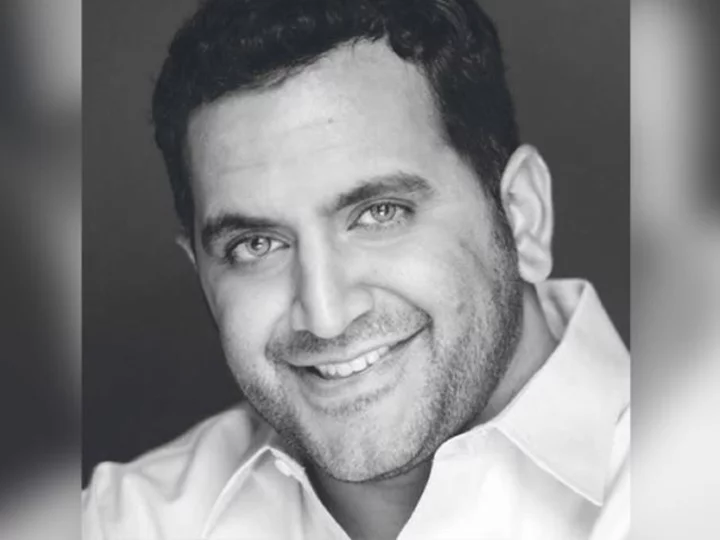
FBI arrests Nate Paul, close associate of Texas Attorney General Ken Paxton, on undisclosed charge
Nate Paul, a real estate investor and close associate of Texas Attorney General Ken Paxton, was arrested by the FBI Thursday afternoon, jail records show.
1970-01-01 08:00
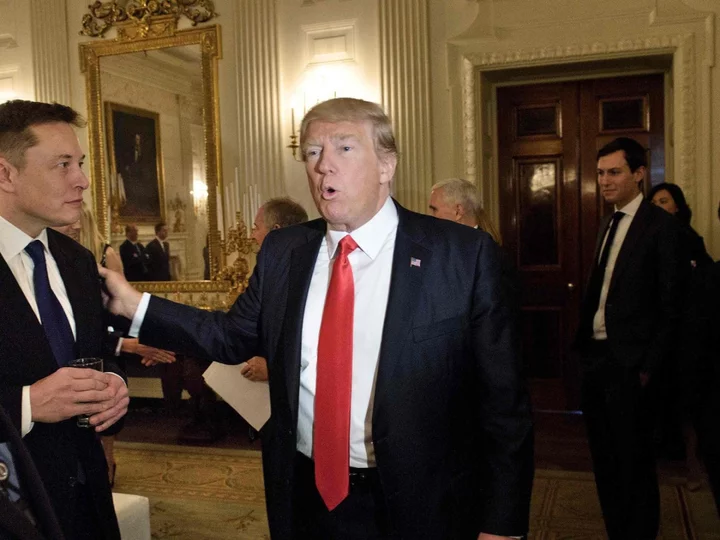
Elon Musk mocked for asking why there is ‘far higher interest in pursuing Trump’
Elon Musk was derided on Twitter after he said there is “far higher” political interest in pursuing Donald Trump than other politicians after the former president was indicted for the second time. The Tesla, SpaceX and Twitter tech tycoon on Thursday called Mr Trump’s indictment “differential enforcement”, suggesting he was unfairly targeted by law enforcement based on political biases. “There does seem to be far higher interest in pursuing Trump compared to other people in politics,” Mr Musk said, reacting to a tweet by a pro-Trump user. “Very important that the justice system rebut what appears to be differential enforcement or they will lose public trust.” Mr Musk, who has declared his support to the Republican party, has courted several prominent right-wing figures in politics and media. Mr Musk also recently oversaw the launch of Florida governor Ron DeSantis’s official 2024 campaign announcement to seek the Republican presidential nomination. Following his takeover of Twitter last year, he had also reinstated suspended accounts of several controversial figures, including Mr Trump and other Republicans. Several users on Mr Musk’s platform commented sarcastically on his support for the twice impeached former president. “Could it be that they have evidence Trump committed crimes? It’s not a real endearing defense to cry out loud ‘what about’ my political adversaries?” a user Marc said. “Isn’t the rebuttal commonly known as a trial?” asked another user sarcastically. “Differential Treatment? Like when poor people get higher/worse sentences because they can’t afford representation?” another user asked. Twitter adviser and close associate of Mr Musk, David Sacks, also weighed in over Mr Trump’s indictment. He referred to allegations by officials that Joe Biden kept government documents in the garage of his Delaware home. “Trump has been indicted for keeping documents in his basement. Makes sense. Everyone knows you’re supposed to keep them in your Corvette,” Mr Shacks said. Mr Trump was indicted on charges of retaining classified government documents at his Mar-a-Lago residence and obstruction of justice, according to a lawyer for the former US president. He is facing seven criminal counts in the federal case, including one count of conspiracy to obstruct justice, one count of making false statements and at least one count of unlawful retention of national defence information. The case by the Justice Department has come as another legal setback for Mr Trump, who seeks a return to the White House in 2024. This is the second indictment against Mr Trump after he faced charges over a hush money payment to adult film star Stormy Daniels. Mr Trump has claimed innocence in both cases. Read More Trump indictment - live: Trump says he’s ‘an innocent man’ as he faces seven charges in documents case Trump indicted in classified documents case in a historic first for a former president Obstruction, false statements and unlawfully retaining documents: The charges against Donald Trump Ivanka and Jared split over attending Trump 2024 launch – follow live Why was Donald Trump impeached twice during his first term? Four big lies Trump told during his 2024 presidential announcement
1970-01-01 08:00
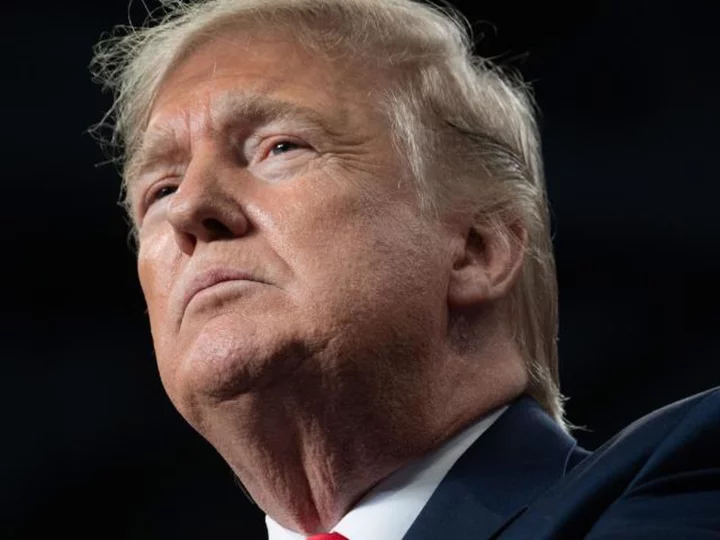
The twice-impeached Trump now faces his second criminal indictment as he looks to recapture White House
Donald Trump, who has often lied, unquestionably told the truth when he said Thursday was a "dark day" for America.
1970-01-01 08:00
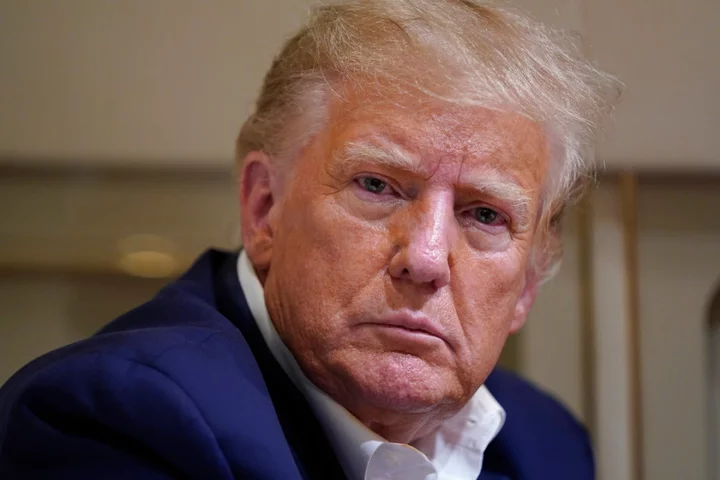
Trump indicted in classified documents case in a historic first for a former president
Donald Trump has been indicted on charges of mishandling classified documents at his Florida estate, a remarkable development that makes him the first former president in U.S. history to face criminal charges by the federal government that he once oversaw. The Justice Department was expected to make public a seven-count indictment ahead of a historic court appearance next week in the midst of a 2024 presidential campaign punctuated by criminal prosecutions in multiple states. The indictment carries unmistakably grave legal consequences, including the possibility of prison if Trump's convicted. But it also has enormous political implications, potentially upending a Republican presidential primary that Trump had been dominating and testing anew the willingness of GOP voters and party leaders to stick with a now twice-indicted candidate who could face still more charges. And it sets the stage for a sensational trial centered on claims that a man once entrusted to safeguard the nation's most closely guarded secrets willfully, and illegally, hoarded sensitive national security information. The Justice Department did not immediately confirm the indictment publicly. But two people familiar with the situation who were not authorized to discuss it publicly said that the indictment included seven criminal counts. One of those people said Trump's lawyers were contacted by prosecutors shortly before he announced Thursday on his Truth Social platform that he had been indicted. Within minutes of his announcement, Trump, who said he was due in court Tuesday afternoon in Miami, began fundraising off it for his presidential campaign. He declared his innocence in a video and repeated his familiar refrain that the investigation is a “witch hunt.” The case adds to deepening legal jeopardy for Trump, who has already been indicted in New York and faces additional investigations in Washington and Atlanta that also could lead to criminal charges. But among the various investigations he faces, legal experts — as well as Trump's own aides — had long seen the Mar-a-Lago probe as the most perilous threat and the one most ripe for prosecution. Campaign aides had been bracing for the fallout since Trump’s attorneys were notified that he was the target of the investigation, assuming it was not a matter of if charges would be brought, but when. Appearing Thursday night on CNN, Trump attorney James Trusty said the indictment includes charges of willful retention of national defense information — a crime under the Espionage Act, which polices the handling of government secrets — obstruction, false statements and conspiracy. The inquiry took a major step forward last November when Attorney General Merrick Garland, a soft-spoken former federal judge who has long stated that no one person should be regarded as above the law, appointed Jack Smith, a war crimes prosecutor with an aggressive, hard-charging reputation to lead both the documents probe as well as a separate investigation into efforts to subvert the 2020 election. The case is a milestone for a Justice Department that had investigated Trump for years — as president and private citizen — but had never before charged him with a crime. The most notable investigation was an earlier special counsel probe into ties between his 2016 campaign and Russia, but prosecutors in that probe cited Justice Department policy against indicting a sitting president. Once he left office, though, he lost that protection. The indictment arises from a monthslong investigation into whether Trump broke the law by holding onto hundreds of documents marked classified at his Palm Beach property, Mar-a-Lago, and whether Trump took steps to obstruct the government’s efforts to recover the records. Prosecutors have said that Trump took roughly 300 classified documents to Mar-a-Lago after leaving the White House, including some 100 that were seized by the FBI last August in a search of the home that underscored the gravity of the Justice Department’s investigation. Trump has repeatedly insisted that he was entitled to keep the classified documents when he left the White House, and has also claimed without evidence that he had declassified them. Court records unsealed last year showed federal investigators believed they had probable cause that multiple crimes had been committed, including the retention of national defense information, destruction of government records and obstruction. Since then, the Justice Department has amassed additional evidence and secured grand jury testimony from people close to Trump, including his own lawyers. The statutes governing the handling of classified records and obstruction are felonies that could carry years in prison in the event of a conviction. Even so, it remains unclear how much it will damage Trump's standing given that his first indictment generated millions of dollars in contributions from angry supporters and didn’t weaken him in the polls. The former president has long sought to use his legal troubles to his political advantage, complaining on social media and at public events that the cases are being driven by Democratic prosecutors out to hurt his 2024 election campaign. He is likely to rely on that playbook again, reviving his longstanding claims that the Justice Department — which, during his presidency, investigated whether his 2016 campaign had colluded with Russia — is somehow weaponized against him. Trump’s legal troubles extend beyond the New York indictment and classified documents case. Smith is separately investigating efforts by Trump and his allies to overturn the results of the 2020 presidential election. And the district attorney in Georgia’s Fulton County is investigating Trump over alleged efforts to subvert the 2020 election in that state. Signs had mounted for weeks that an indictment was near, including a Monday meeting between Trump’s lawyers and Justice Department officials. His lawyers had also recently been notified that he was the target of the investigation, the clearest sign yet that an indictment was looming. Though the bulk of the investigative work had been handled in Washington, with a grand jury meeting there for months, it recently emerged that prosecutors were presenting evidence before a separate panel in Florida, where many of the alleged acts of obstruction scrutinized by prosecutors took place. The Justice Department has said Trump repeatedly resisted efforts by the National Archives and Records Administration to get the documents back. After months of back-and-forth, Trump representatives returned 15 boxes of records in January 2022, including about 184 documents that officials said had classified markings on them. FBI and Justice Department investigators issued a subpoena in May 2022 for classified documents that remained in Trump’s possession. But after a Trump lawyer provided three dozen records and asserted that a diligent search of the property had been done, officials came to suspect even more documents remained. The investigation had simmered for months before bursting into front-page news in remarkable fashion last August. That’s when FBI agents served a search warrant on Mar-a-Lago and removed 33 boxes containing classified records, including top-secret documents stashed in a storage room and desk drawer and commingled with personal belongings. Some records were so sensitive that investigators needed upgraded security clearances to review them, the Justice Department has said. The investigation into Trump had appeared complicated — politically, if not legally — by the discovery of documents with classified markings in the Delaware home and former Washington office of President Joe Biden, as well as in the Indiana home of former Vice President Mike Pence. The Justice Department recently informed Pence that he would not face charges, while a second special counsel continues to investigate Biden’s handling of classified documents. But compared with Trump, there are key differences in the facts and legal issues surrounding Biden’s and Pence’s handling of documents, including that representatives for both men say the documents were voluntarily turned over to investigators as soon as they were found. In contrast, investigators quickly zeroed on whether Trump, who for four years as president expressed disdain for the FBI and Justice Department, had sought to obstruct the inquiry by refusing to turn over all the requested documents. _____ Tucker reported from Washington. Colvin reported from Des Moines, Iowa. Read More Ivanka and Jared split over attending Trump 2024 launch – follow live Why was Donald Trump impeached twice during his first term? Four big lies Trump told during his 2024 presidential announcement GOP opponent says Trump should drop out after ‘disrespect for the rule of law’ Trump says he’s ‘an innocent man’ as he’s indicted on seven charges in documents case Trump allies accuse Democrats of ‘election interference’ as ex-president indicted
1970-01-01 08:00
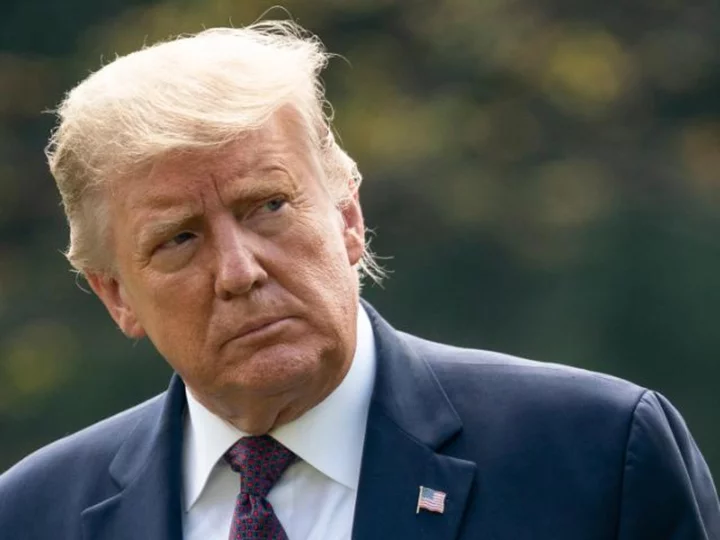
Donald Trump's criminal cases, explained
Could he still run for president? Why did the adult-film star case move before any of the ones about protecting democracy? How could you possibly find an impartial jury? Here are answers to some of the questions about the indictment of former President Donald Trump.
1970-01-01 08:00
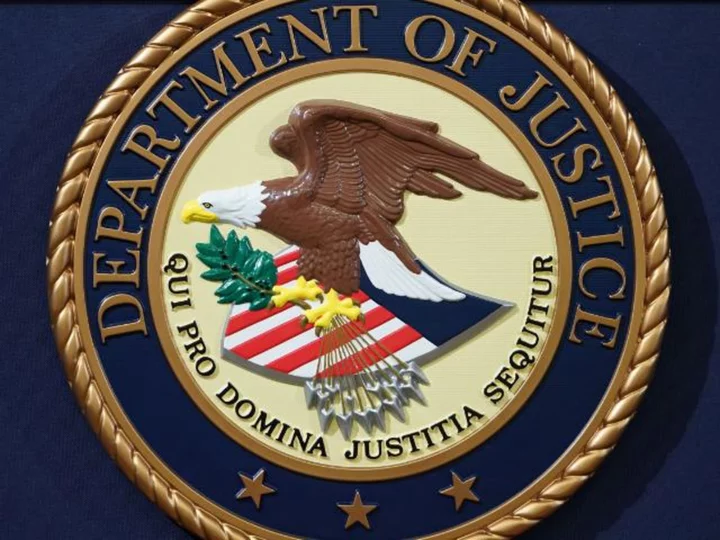
DOJ investigating conservative-backed efforts in Wyoming to infiltrate DNC ahead of 2020 election, sources say
Federal prosecutors are investigating conservative-backed efforts in Wyoming to infiltrate the Democratic National Committee ahead of the 2020 election, according to people familiar with the matter.
1970-01-01 08:00
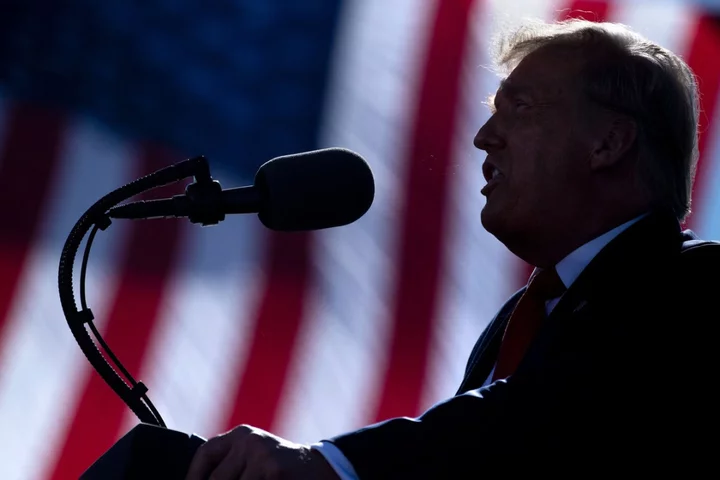
Obstruction, false statements and unlawfully retaining documents: The charges against Donald Trump
Donald Trump is expected to face seven counts in a federal indictment stemming from the US Department of Justice investigation into his possession of classified documents at his Mar-a-Lago property. Federal prosecutors are expected to charge him with the willful retention of national defense secrets in violation of the Espionage Act, making false statements, obstruction and witness tampering. Mr Trump will surrender, face arrest, and be formally charged in US District Court in Miami, as soon as next week, after a federal grand jury believed there was enough evidence to bring charges against him. A potential sentence, if convicted, could include decades in prison. The exact charges against Mr Trump have not been announced, and it is unclear whether an indictment against him will remain sealed until it is formally presented in federal court. Mr Trump said he was due in federal court in Miami at 3pm ET on Tuesday 13 June. He has repeatedly denied any wrongdoing and declared the investigations against him a “witch hunt”. An investigation from special counsel Jack Smith, who was appointed to lead the Justice Department’s probe into the former president’s alleged mishandling of documents after leaving the White House, reportedly is looking into whether his lawyers falsely certified that he returned classified records to the government, or whether he concealed them, illegally, and lied to his legal team. Federal prosecutors are expected to present compelling evidence that the former president knowingly and deliberately misled his attorneys about his retention of sensitive documents after leaving the White House in January 2021 after losing his re-election bid. Unauthorised retention of national security documents The frontrunner for the 2024 Republican presidential nomination will face charges under the Espionage Act, which the Justice Department invoked against now-former National Security Agency translator Reality Winner while Mr Trump was president in 2018. Julian Assange and Daniel Hale also were charged under the Espionage Act in 2019. Mr Trump is now expected to face that same charge, according to his lawyer James Trusty. One of the six sections under the Espionage Act, Section 793, prohibits “gathering, transmitting or losing” any “information respecting the national defence”. The use of Section 793, which does not make reference to classified information, is understood to be a strategic decision by prosecutors that has been made to short-circuit the former president’s ability to claim that he used his authority as president to declassify documents he removed from the White House and kept at his Florida property long after his term expired on 20 January 2021. That section of US criminal law is written in a way that could encompass Mr Trump’s conduct even if he was authorised to possess the information as president. It states that anyone who “lawfully having possession of, access to, control over, or being entrusted with any document … relating to the national defence” and “willfully” transmits such information in any way can face a prison sentence of up to 10 years. Obstruction A charge of obstruction in this case likely involves the “destruction, alteration, or falsification of records in federal investigations.” In a case before a jury, federal prosecutors must prove whether Mr Trump knowingly retained documents under the National Archives and Records Administration’s custody, and willfully defied the Justice Department’s subpoena for classified documents in his possession. A conviction includes a penalty of up to 20 years in prison. An additional charge of conspiracy, which would need to include another person in order to commit a crime, could carry a sentence of five years. Making false statements Mr Trump could face additional charges for making false statements, or allowing his legal team to make false statements, if prosecutors determine that he lied to law enforcement about the documents in his possession at the subject of the subpoenas against him. That could include an additional five-year sentence, if convicted. Witness tampering Section 1512 under Title 18 includes a broad prohibition against tampering with a witness, victim or informant involved in a federal investigation. It applies to matters before Congress as well as federal agencies and civil and criminal judicial proceedings, including grand jury proceedings. A conviction includes a maximum sentence of 20 years in prison. A federal indictment against Mr Trump arrives days after a last-ditch attempt by his legal team to convince Justice Department officials against charging him. Investigators launched a probe early last year after officials with the National Archives and Records Administration discovered more than 100 documents bearing classification markings while reviewing 15 boxes retrieved from Mr Trump’s Mar-a-Lago home. US Attorney General Merrick Garland appointed Mr Smith, a former war crimes prosecutor at The Hague, as special counsel to lead the probe. An indictment serves as a formal accusation, among a prosecutor’s first steps before a case can be brought to trial. Grand jurors heard evidence and testimony brought forward from prosecutors and witnesses they chose to present. In a trial, a jury will hear from defence attorneys. Following Mr Trump’s formal indictment, prosecutors will share evidence with his legal team and likely begin motions to dismiss the case. Andrew Feinberg contributed reporting Read More Trump indictment - live: Trump says he’s ‘an innocent man’ as he faces seven charges in documents case Read Trump’s furious reaction to federal indictment in classified documents case Trump has been indicted again: Here are all of the major lawsuits and investigations he is facing
1970-01-01 08:00
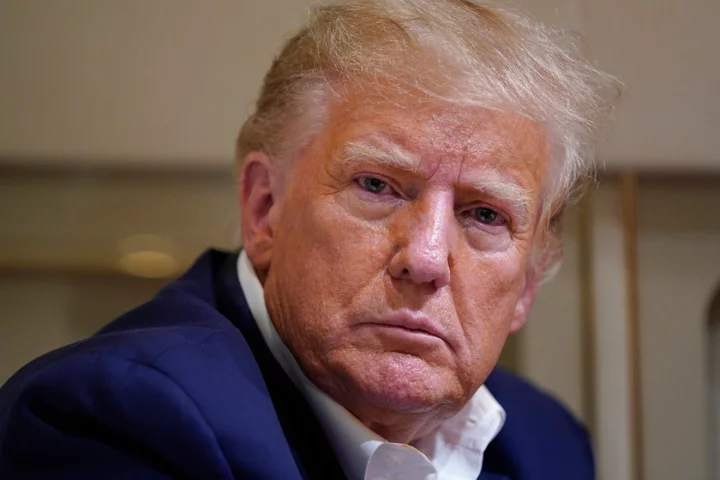
Trump allies invoke JFK assassination and accuse Democrats of ‘election interference’ as ex-president indicted
Allies of former president Donald Trump quickly came to his defence on Thursday after he revealed he was facing a federal indictment related to a Department of Justice investigation into his mishandling of classified documents. The indictment comes after a months-long investigation into whether Mr Trump knowingly kept sensitive materials at his Mar-a-Lago home and / or misled investigators looking into the matter. According to reports, Mr Trump will face seven charges related to the federal indictment. On Twitter, allies of Mr Trump remained loyal to him and downplayed the severity of the indictment. Representative Matt Gaetz (R-FL) claimed the indictment was a form of “election interference” on Twitter “This phony Boxes Hoax indictment against President Trump reflects the most severe election interference on the part of the federal government that we have EVER seen!” he tweeted. Representative Marjorie Taylor Greene (R-GA) said the indictment came because Democrats fear Mr Trump will win re-election. "Democrats must literally shake with sweats when they see amazing packed out Trump rallies and overwhelming winning poll numbers week after week," she tweeted. "They must awake in the night with panic at the thoughts of us winning in 2024." Ms Greene added that the indictment was meant to distract from Mr Biden’s supposed crimes, for which she provided debunked claims or those with little evidence. She also noted how Mr Biden currently faces an investigation from Special Counsel Robert Hur for having classified documents at multiple locations, including his private residence. "Joe Biden has classified documents everywhere," she tweeted. "Literally on the garage floor next to the garage door that opens and closes, but the corrupt and complicit FBI and DOJ do nothing." Senator Marco Rubio (R-FL) tweeted: "There is no limit to what these people will do to protect their power & destroy those who threaten it, even if it means ripping our country apart & shredding public faith in the institutions that hold our republic together.” In a statement posted to her Twitter, Representative Elise Stefanik (R-NY) echoed other GOP congressional members’ statements, saying the indictment was an interference with Mr Trump’s campaign. Right-wing activist Mike Cernovich tweeted: “This is the JFK assassination all over again - they are killing Trump by other means.” In another post he said: “The deep state killed JFK with bullets. Now they are using briefcases to assassinate those who stand in their way.” The indictment comes as Mr Trump is seeking a third bid for the White House. Representative Andy Biggs (R-AZ), one of the leaders of the insurgent House Freedom Caucus, railed against the Justice Department for the indictment "We ought to defund and dismantle the DOJ," he tweeted. "I stand with President Trump." Additional reporting by Eric Garcia Read More ‘A criminal not a victim’: Trump critics mock his cries of ‘witch-hunt’ as he is indicted over secret papers Trump indictment - live: Trump says he’s ‘an innocent man’ as he faces seven charges in documents case Will Donald Trump be arrested and jailed after classified documents indictment? Ivanka and Jared split over attending Trump 2024 launch – follow live Why was Donald Trump impeached twice during his first term? Four big lies Trump told during his 2024 presidential announcement
1970-01-01 08:00
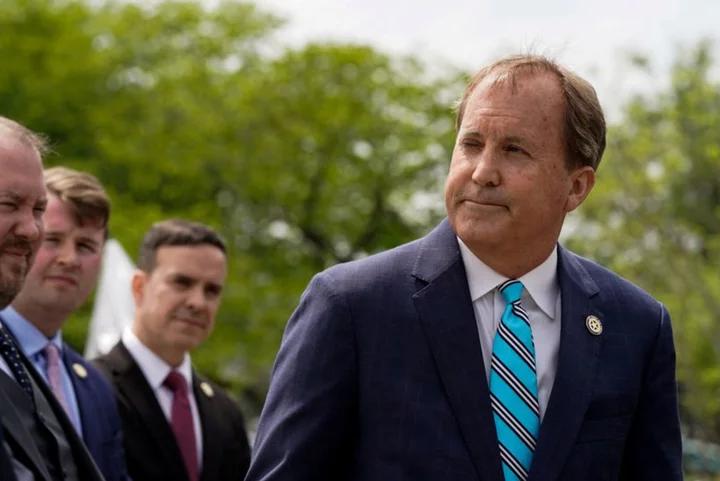
FBI arrests Texas man at center of suspended attorney general Paxton's impeachment
By Brad Brooks FBI agents on Thursday arrested a real estate developer at the center of allegations that
1970-01-01 08:00
